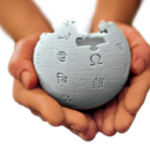 Wikipedia is a hugely influential platform, with a recent MIT study highlighting how important it is in disseminating scientific knowledge and understanding throughout society.
Wikipedia is a hugely influential platform, with a recent MIT study highlighting how important it is in disseminating scientific knowledge and understanding throughout society.
“Our research shows that scientists are using Wikipedia and that it is influencing how they write about the science that they are doing,” the authors say. “Wikipedia isn’t just a record of what’s going on in science, it’s actually helping to shape science.”
Indeed, the authors were able to quantify the impact, and found that Wikipedia was influencing around one word in every three-hundred, with this impact stronger in countries with less access to traditional scientific journals.
Strength in diversity
Such strength comes about largely due to the diversity of participants in the site, although a recent study led by researchers from Purdue University found that there is very much a long tail of contributors to the site, with a relatively small number performing the majority of edits.
They analyzed every edit made to the site between 2001-2010, or the first ten years of operation, and found that the top 1% of contributors created approximately 80% of the content.
“What we saw is that a clear leadership has emerged,” they say, “but it’s a leadership that cycles. We have a group of individuals who shape the content by working the hardest and clocking the most hours. The agenda is shaped by these people, and they’re driven by a sense of mission, much like political or religious movements.”
What is interesting however is that whilst the ratio of who creates the content has remained constant over time, the top 1% themselves have come and gone.
“It’s like the Tour de France,” the authors explain. “At any particular time, there is a group that leads. Then, they fall back and another pack emerges.”
Growing the contributor base
A number of projects are actively seeking to increase the number of contributors to the site however. For instance, last year saw the launch of the Wikipedia Year of Science, which aims to help scientists better connect themselves and their work with the public. A major part of the project was a number of co-hosted Wikipedia edit-a-thons at scientific conferences around the world.
The events, which were hosted by the Simons Foundation, aimed to leverage the collective brainpower of the scientists present at each event. They were given training and support to ensure they were familiar with editing Wikipedia, and then marathon editing sessions were facilitated during which the scientists contributed heavily in their areas of expertise.
The Foundation have produced a report that not only documents the success of these initiatives, but also outlines how you can organize an edit-a-thon yourself. It captures all of the lessons and takeaways from the years worth of events, with the hope being that such sessions will become a feature of scientific conferences.
With Wikipedia being such an invaluable resource, it’s undoubtedly a commons that is well worth preserving.